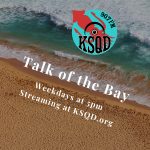
A Dream Deferred
When I was eight years old in 3rd grade, I was asked to read Dr. Martin Luther King Jr.’s famous “I Have a Dream” speech in front of the two neighboring elementary schools, the Monday following his death. Looking back at this event, I understand more fully the level of sorrow and loss that my community in St. Louis, Missouri felt that day upon learning King had been assassinated.
by Gail Thornton Borkowski
The Dream A Shot Deferred (A Radio Production)
Narrator: It was April 3, 1968. My 3rd grade classmates and I were buzzing with anticipation for our Spring Festival performance. The two elementary schools, Hamilton Branch No. 3 and 4, in the heart of St. Louis, Missouri, had created a variety of performances for parents and teachers. It was a celebration we all looked forward to. My class had spent the last month practicing.
Narrator: Our class had created a matador themed story, complete with sock puppets and a cha-cha line dance, choreographed by our young teacher. I was the narrator and I was excited, unlike my last public reading as a kindergartener, when I feared that God would strike me down for reading about holly & mistletoe in a Catholic church. I was taught that only members of my small, inner-city, Pentecostal church would make it to heaven, and I just knew this blasphemous reading in a Catholic church was surely my ticket to hell. Surviving until 3rd grade, I was hopeful that having dodged that bolt of lightning, God was okay with me reading in public. More importantly, so was my mother.
Narrator: I was born to a mother, left single. She was a domestic worker living in poverty. One of the unnoticed, a mere statistic on the welfare roll. Faithful to God, her church and doing her best to raise a teenager and two young children.
Sound:
Narrator: She was strong, educated in life, not a classroom, and struggling to survive. Her political acumen consisted of reading every magazine she could get her hands on. And even when given the power to vote, she chose to pray for those leading the nation. Bittersweet to those of us who came to understand the power of voting and the memory of those who died in the struggle for one person, one vote.
Narrator: As an 8-year-old, my world consisted of the 10 or so blocks that made up my inner-city neighborhood. The people, shabby like the sidewalks and alleys strewn with broken glass and dry dirt, existed like the dead grass that never seemed to have a chance to grow even in spring when the sun would shine.
Narrator: There was the church, the laundromat, the five & dime, the butcher shop, the Velvet Freeze ice cream shop, and school. Aside fromchurch, school was the anchor in my neighborhood. School was the other place of order and discipline and occasionally creativity.
Narrator: Wednesday, April 3, 1968, harsh light blocked my view of the parents and teachers in the auditorium. But, I read my heart out at that microphone, telling the story of the matador that fought the bull and won. I joined my classmates on the dance floor and cha-cha’d to rousing applause as we ended our presentation. It was a thrill to hear the praise of parents and teachers for my reading. Our class celebrated the next day with an impromptu party, hosted by our teacher. She was young compared to other teachers. Maybe in her 20s or 30s. She was brown, beautiful and shared her passion for experiential learning with a room full of eager, little Black boys and girls.
Sound:
Narrator: Friday, April 5th 1968, I walked into my 3rd grade classroom to see my teacher, head-down on her desk with a radio turned on next to her head. She sobbed
Narrator: Most of my classmates, like me, were confused and scared.
Why was our teacher crying? Why did she have a radio on in class? She (teacher’s name forgotten) eventually told us, through choking tears, Dr. Martin Luther King, Jr. had been killed.
Sound under:
Narrator: Our shock was tempered by naïveté. Some of our Black families were politically astute, knew, followed and supported the work of Dr. King. Some families, like mine, although religious, stood on the political fringe, praying and hoping for change, with little to no personal activism.
Narrator: My classmates and I huddled together in small groups, whispering our suspected understandings to each other. Then, I was called to the principal’s office. I walked down that short hall even more confused and scared.
Narrator: When the Principal motioned for me to quickly sit down, I was speechless with fear. The principal, finally registering my confusion, gently explained how impressed he was with my reading talent and how well I read during the Spring Festival. He then told me that Dr. Martin LutherKing, Jr. had been assassinated. I stared at him. He clarified. Reverend Martin Luther King, Jr. had been assassinated.
Narrator: Assassinated was a big word for a 3rd grader. But I knew the definition. Still confused, I sat silent. He handed me a piece of paper with lots of words on it. I looked at the paper then at him still not quite understanding. He then asked if I could memorize the “I Have A Dream” speech and read it for assembly on Monday.
Narrator: Nervously, I looked at the speech. It was then I noticed the other teachers in the office all staring at me, all smiling through what I would later understand as painful devastation.
Narrator: So many thoughts rushed into my 8-year-old mind. Instantly, those words and that piece of paper felt weighted like a bowling ball. I sensed the anguish on the adult faces as I quickly scanned that crowded room.
Narrator: The speech was long as I recall. I told the principal it was too much for me to memorize over the weekend and I would need to ask my momma if I could read it anyway. He cut me off and said he would call her. I quickly told him my home number, then, scared again, told him she wouldn’t be there until she walked home from work after 5 o’clock. He tried to hide his exasperation, but then told me he would write a note to my mother explaining. I hesitated, then asked him if I could just read it on Monday. He wrote the note and handed it to me.
Narrator: That night, when momma got home, She walked into the living room, slowly took off her shoes and sat silently in the green chair for a long time looking out the windows. Our flat had three large windows in the living room that looked out onto the street. It was a place we all sat at times tracking life in our neighborhood. As she bowed her head, I knew she was praying.
Narrator: I waited for a long as I could stand, then handed her the note. She motioned for the speech, which I handed to her. She read it, looked at me and said it was a lot to memorize by Monday. I told her I asked the principal if I could just read it. She bowed her head and took a breath. She handed me both papers, nodded, then walked back to the kitchen. I let out a breath and started to read the speech.
Narrator: Monday, April 8, 1968, in the overflowing school auditorium of Hamilton Branch No. 4, the principal read his prepared welcome, choking up a bit at the announcement of Rev. King’s death. I stood in the glare of the lights, blinded beyond my view of the microphone. I could hear murmured words, greetings, coughs and laments in the crowded room. I caught a glimpse of two little ones, oblivious to the room saturated in sorrow, running and giggling with abandon away from their parents, until they were scooped up and hushed in harsh tones.
Narrator: A teacher hurriedly motioned for me to read, the principal so overcome with emotion he had stepped aside to dry his eyes.
Narrator (Little Girl): I don’t remember all of the words I read of Dr. Martin Luther King, Jr.s “I Have A Dream” speech in that auditorium of children, teachers, and family members (originally delivered on August 28, 1963 at the March on Washington). But I read my heart out, again. Words that I didn’t understand the deeper meaning of for years.
READING:
I have a dream…
Deeply rooted in the American dream…that my four little children will one day live in a nation where they will not be judge by the color of their skin but by the content of their character…
Narrator (Little Girl): I continued…
“I have a dream that little black boys and black girls will be able to join hands with little white boys and white girls and walk together as sisters and brothers…”
Narrator: Although I couldn’t see the faces in that auditorium, I heard the sobs and sniffles, the unrestrained tears. And my heart ached for the Black bodies and souls in that auditorium, and the overwhelming assemblage of pain. It was so much to bear. I found a space and I cried. I cried for my neighbors: the butcher, the clerk, my teacher, the principal; for feeling powerless in that assembly space steeped in unbearable sorrow. My 3rd grade mind struggled to understand a world so much more complex than my school yard, neighborhood and church.
Narrator: I didn’t realize how intensely the anger and rage would follow this tragedy. Our TV was often broken, and having no money for replacement parts, it often sat in our living room large, black and devoid of any sound, picture or information. And yes, the rage and anger did follow with people rioting in the nation’s streets. And me sheltered in my flat blanketed in my mother prayers.
Narrator: Fifty plus years later, my tears fall again recalling that day and the years in between. So much and so little has changed. I don’t remember all of his words I spoke on that Monday in 1968, but I do remember the collective anguish and sorrow. I could ask, “why kill a man speaking out for the rights of the oppressed and downtrodden? Speaking to the humanity we all deserve? But we all know the answer.
Narrator: Rev. King, as he was known in my house was a faithful man, who walked in the middle of our Black struggle. He was the messenger, the voice of reason and an articulate witness to the horrors of poverty, oppression and bigotry. It wasn’t until I was older that I understood how that gunshot had shattered the hopes and dreams of my inner-city community.
Narrator: I do remember reading:
And even though we face the difficulties of today and tomorrow, I still have a dream. It is a dream deeply rooted in the American dream.
I have a dream that one day this nation will rise up and live out the true meaning of its creed: “We hold these truths to be self-evident, that all men are created equal….
Sound under: And Rev. King spoke: “I don’t know what will happen now. We’ve got some difficult days ahead, but it really doesn’t matter with me now, because I’ve been to the mountain top. I don’t mind. Like anybody I would like to live a long life. Longevity has its place. But I’m not concerned about that now. I just want to do God’s will. And he’s allowed me to go up to the mountain and I’ve looked over and I’ve seen the promised land. I may not get there with you, But I want you to know tonight, that we as a people will get to the promised land. I’m not worried about anything. I’m not fearing any man. Mine eyes have seen the glory of the coming of the Lord.”
Narrator: If Dr. Martin Luther King, Jr. were here with us, with me today, I’d hold his hand, walk with him, and we would all walk to that mountaintop; the oppressed, disenfranchised, the allies, and accomplices. Our work is not done until we can all stand in unity, compassion and love.
Narrator: I remember these words he spoke: “Let us rise up tonight with a greater readiness…And when this happens, and when we allow freedom to ring, when we let it ring from every village and every hamlet, from every state and every city we will be able to speed up that day when ALL of God’s children, black men and white men, Jews and Gentiles, Protestants and Catholics will be able to join hands and sing in the words of the old Negro spiritual: Free at last! Free at last! Thank God Almighty, we are free at Last!”
Narrator: We all deserve a better world. We are all responsible in realizingthat dream. You and me, together. Thank you, Dr. Martin Luther King, Jr. for your legacy, your faith and seeing the dream realized. Meet you on the mountaintop.
By Gail Thornton Borkowski November 29, 2023
This was produced by GTBMediaworks/StyrdyByrd Productions for Bill Peter’s Radio Acting Workshop 2023.
Sound: Freesound.org (non-copyrighted)
Dr. Martin Luther King, Jr. audio- Youtube
https://www.santacruzactorstheatre.org/tickets (https://www.santacruzactorstheatre.org/tickets)

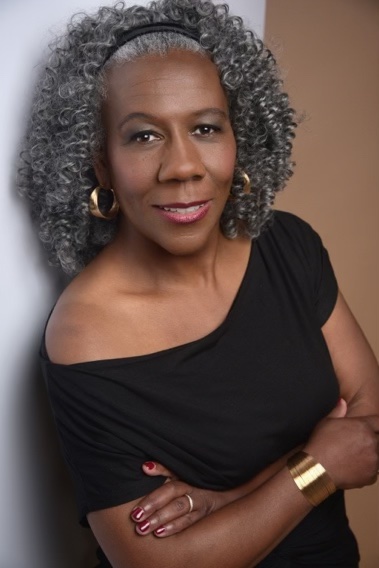
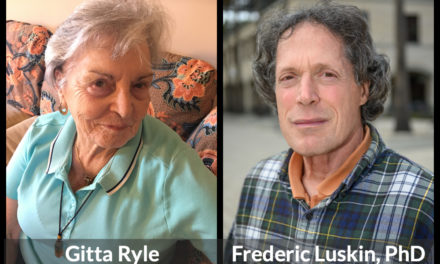

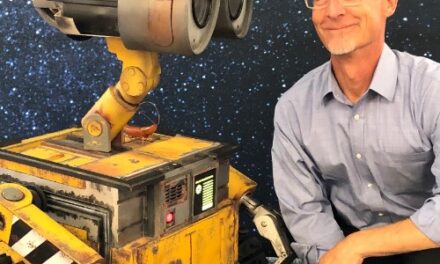


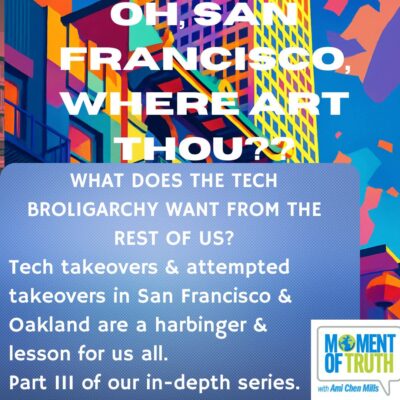
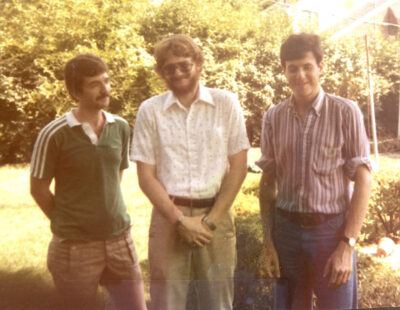
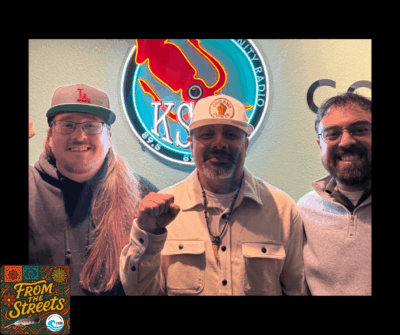
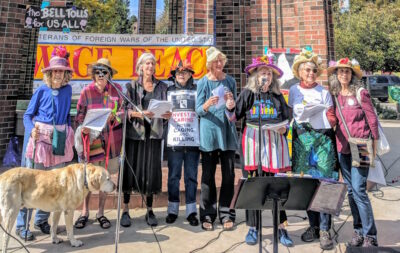
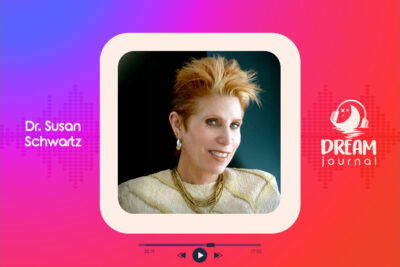
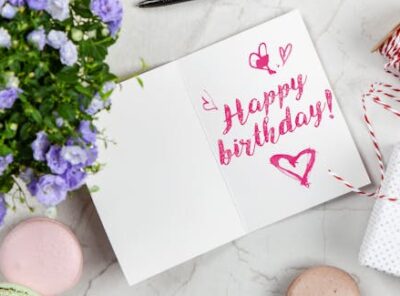
This was a stunningly beautiful and moving peace, and what a perfect tribute to remember and This was a stunningly, beautiful and moving peace, and what a perfect tribute to remember an honor Martin Luther King Jr., and the importance of this day. Thank you Gail!
I still remember that amazing day in 1963 when thousands of people of all ages and colors walked peacefully together
in Washington DC,,,,,,,our March for Jobs and Justice…….I was 20, it was the finale of my honeymoon, the beginning of
my marriage with a sexist socialist activist. We were a Movement couple. For the nxt 8 years I adjusted to an oppressive relationship…….Though by the age of 20, Id already become an activist for Peace and Justice.
The killing of George Floyd and other innocent Black people rekindled and reactivated grassroots solidarity movements.
At 81, I still havent given up. Human Solidarity and Loving Kindness are on the rise worldwide, as millions of us work to
end the genocidal war on Gaza. Dr. King’s determined spirit is still alive.